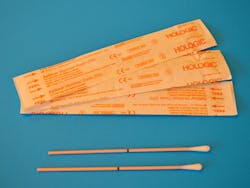When many social and healthcare service organizations had to shut their doors during the first few months of the COVID-19 pandemic, the Baltimore City Health Department (BCHD) was among them. Fortunately, BCHD was still able to provide free, accurate and confidential screening for sexually transmitted infections (STIs) with at-home testing kits.
The city's health department simply referred its clients to Johns Hopkins Medicine and its I Want the Kit (IWTK) at-home testing program.
Now, as more of the population gets vaccinated against COVID-19 and access to STI-testing clinics has resumed, the people behind IWTK have documented a very interesting trend: The number of diagnostic kits requested has remained high even though the pandemic-driven need has lessened.
“IWTK offered a way to provide high quality testing, telemedicine follow-up and targeted treatment during BCHD’s COVID-19 shutdown, but we’ve found that the convenience, ease and privacy associated with an at-home test continues make our kit very popular on its own merits,” says Yukari Manabe, MD, Director of the Center for Innovative Diagnostics for Infectious Diseases in the Division of Infectious Diseases and Professor of Medicine at the Johns Hopkins University School of Medicine. “There’s been no drop off in demand to pre-COVID levels.”
Since its beginning in 2004, the IWTK program has conducted STI screenings for thousands of people in Maryland with funding and support from its partnership with BCHD and the Maryland Department of Health. In 2011, the program expanded into Alaska through a contract with the state and a second partnership with the Alaska Native Tribal Health Consortium. More recently, a contract with the State of Arizona and a partnership with the Inter Tribal Council of Arizona broadened the program’s reach.
By requesting the discreetly packaged at-home testing kit — which contains sample collection swabs and transport tubes, instructions, a contact form, information on STIs, a biohazard bag and a pre-paid mailer — people be tested for chlamydia and gonorrhea by the Johns Hopkins Medicine laboratories

